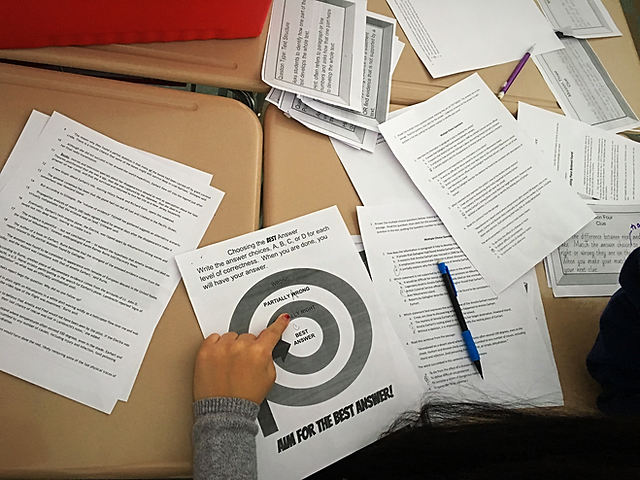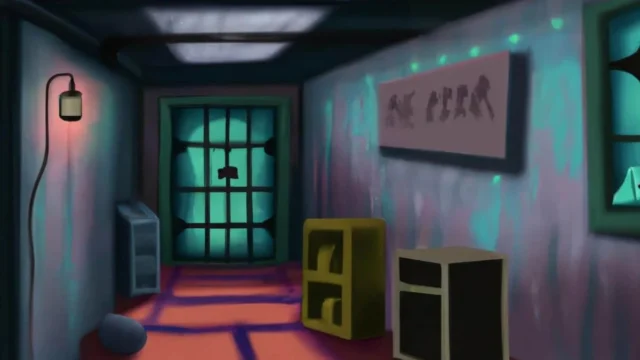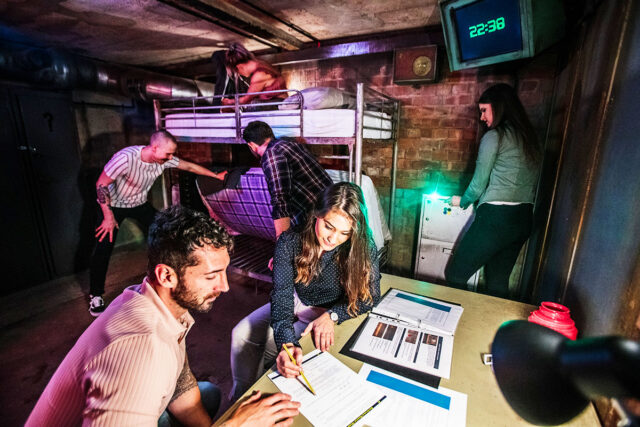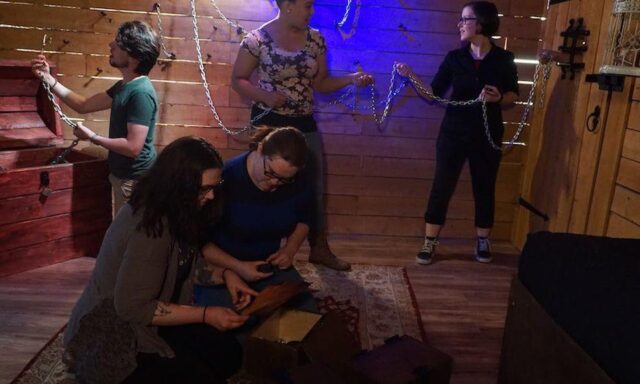Escape rooms have surged in popularity as both a fun personal challenge and an invaluable team-building exercise. They rely on a diverse skill set: problem-solving, attention to detail, and effective communication. If you’re looking to not only escape the room but also impress your team-building colleagues, you’ve come to the right place.
Get To Know The Rules
Every escape room has a different set of rules, and understanding them is the first step. Generally, you are locked in a room and have to find clues, solve puzzles, and complete tasks to unlock the door within a set time limit. Some rooms have additional rules about what you can or cannot touch, so listen to the instructions carefully and make sure your entire team is on the same page. Make sure to visit the Excape room in london for a real challenge!
Communicate
Clear, calm, and concise communication is crucial in an escape room. Ensure everyone in your team has the opportunity to voice their thoughts and ideas. It’s crucial to actively listen to each team member, as you never know who will have the key insight to solve a puzzle.
Sub-Heading: Share Information
Found a clue? Let your team know! Information should be freely shared among all team members to piece together the puzzle effectively. Working in silos can be detrimental, and coordinating as a team will speed up the process.
Divide and Conquer
It’s essential to ensure that everyone has a task to do. Assign roles or areas of the room to different team members. This division of labor allows your team to cover more ground in a shorter period, increasing your chances of escaping the room in time.
Stay Organized
Keeping clues and solved puzzles organized can help your team avoid wasting time on tasks that have already been completed. Designate an area in the room to place used or useless items.
Analyze the Clues

Sub-Heading: Think Out of the Box
Escape room clues are notoriously tricky. Encourage your team to think creatively and consider multiple perspectives when analyzing clues. The more diverse the thinking, the more likely you are to solve the puzzle.
Sub-Heading: Don’t Overthink
While creative thinking is crucial, it’s also important not to overthink. If you find your team stuck on a particular puzzle, move on to another one and come back later.
Utilize the Game Master
The Game Master is there to help, and asking for hints is not a sign of failure. If you are truly stuck, it’s better to ask for help than waste precious time. Use the hints to guide your thinking, not just give away the answers.
Keep an Eye on the Clock
Time management is crucial to escape room success. Designate someone to keep track of time and set benchmarks to complete certain tasks. This strategy will help your team stay on track to escape the room in time.
Celebrate Small Wins

Every solved puzzle is a step closer to escaping the room. Celebrate small wins along the way to keep morale high and maintain momentum.
Post-Game Analysis
After the game, discuss what strategies worked and what didn’t. This discussion is not only a valuable learning experience but also a chance to commend team members for their contributions.
Problem-Solving Techniques
Sub-Heading: Logical Analysis
Developing strong problem-solving skills, including brain training games, is central to succeeding in escape rooms. Employ logical analysis to decipher codes, figure out patterns, and solve puzzles. This methodical approach can help streamline the process and eliminate potential distractions or confusion.
Sub-Heading: Collaborative Solution
Remember that multiple brains are better than one. Work together, combine your unique skills and knowledge, and always value each team member’s input. Every perspective can add value and might be the missing link to solving a challenging problem.
Stay Calm Under Pressure
Sub-Heading: Breathe
In the heat of the moment, it’s easy to let stress and panic overwhelm you. Make a conscious effort to stay calm. Take deep breaths, maintain a positive attitude, and keep your focus on the objective. A calm mind is a more effective one.
Sub-Heading: Break Down Larger Tasks
Large, complex tasks can seem overwhelming. Break them down into smaller, more manageable parts and distribute them among team members. This tactic not only makes the task more manageable but also allows for faster, more efficient problem solving.
Embrace Each Team Member’s Strengths

Sub-Heading: Recognize Individual Talents
Every team member will have different strengths, weaknesses, and areas of expertise. Some people might be good with numbers, while others excel in creative thinking or have a keen eye for detail. Recognize and utilize each person’s individual talents to tackle various challenges within the escape room.
Sub-Heading: Adapt Roles
Be flexible in roles and responsibilities. Allow team members to take the lead in areas where they excel, and switch roles as needed to ensure that every challenge is met with the best set of skills.
Common Mistakes to Avoid
Sub-Heading: Ignoring Small Details
In an escape room, every detail matters. A common mistake is to overlook seemingly insignificant elements that can be crucial to solving a puzzle. Encourage your team to be observant and consider every element in the room.
Sub-Heading: Not Re-evaluating Strategies
If a strategy is not working, don’t hesitate to re-evaluate and try a different approach. Being adaptable and open to changing tactics is crucial for overcoming unexpected challenges.
Additional Resources for Improvement
Sub-Heading: Escape Room Blogs
Numerous blogs and websites offer valuable insights, tips, and strategies for mastering escape rooms. Spend some time exploring these resources to gain additional knowledge and perspective.
Sub-Heading: Practice Puzzles and Games
Enhance your problem-solving skills by regularly engaging in puzzles, brain teasers, and other similar games. This practice can sharpen your mind and prepare you for the kinds of challenges you’ll face in escape rooms.
Advanced Strategies
Sub-Heading: Cryptography
Learn the basics of cryptography, as many escape rooms use simple ciphers as part of their puzzles. Understanding how to quickly decode messages can be a significant advantage.
Sub-Heading: Spatial Awareness Exercises
Participate in exercises to improve spatial awareness. Many escape rooms require participants to navigate tight spaces, find hidden compartments, or notice details that require a keen spatial understanding.
Beating the Escape Room

Applying these strategies will enhance your escape room experience and increase your chances of success. It’s not just about escaping the room; it’s about working effectively as a team and learning from each other. By communicating, staying organized, effectively analyzing clues, and managing time, your team will not only beat the escape room but also have a lot of fun in the process.
So, are you ready to take on the challenge and impress your team-building colleagues? Apply these strategies in your next escape room adventure and emerge victoriously!









